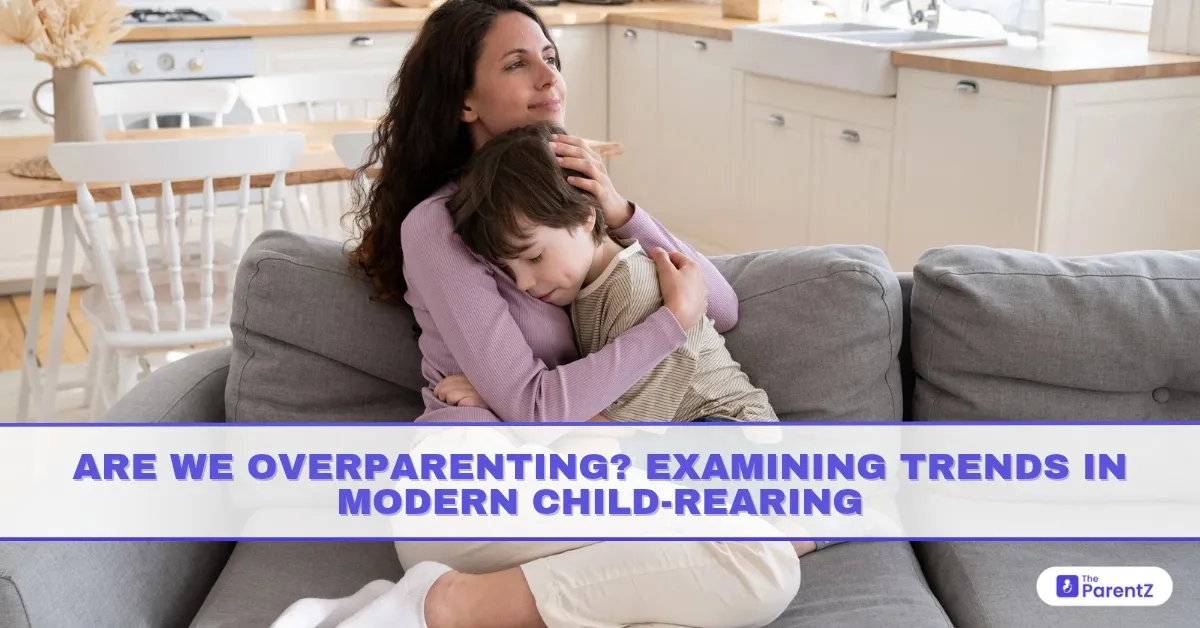You're researching everything from sensory toys to screen-time limits. You're packing lunchboxes with precision and bookmarking articles about emotional regulation. You’ve created color-coded routines, signed up for enrichment classes, and made bedtime rituals feel like Broadway productions.
And yet, you lie awake wondering—am I doing too much?
Read this article to find out if you are really overparenting your little ones.
What Is Overparenting, Anyway?
Overparenting isn’t about loving your child too much—it’s about stepping in so often that your child doesn’t get to build their own wings. It’s micromanaging their schedules, emotions, friendships, and even failures.
Helicopter parenting. Snowplow parenting. Gentle parenting with a side of constant self-doubt. These trends are everywhere. You might not wear the labels, but you’ve likely felt their weight.
How Did We Get Here?
Look around. The world feels faster, scarier, and more competitive. College admissions begin in preschool. Playgrounds feel like networking events. And every parenting decision, from screen time to sleep training, seems to come with online judgment.
Throw in social media’s perfectly curated lives, and suddenly, “good enough” parenting doesn’t feel good enough anymore.
So you overcompensate. You Google obsessively. You intervene at the first sign of struggle. You shape your life around preventing every bump in your child's road—even if that means paving it entirely.
What It’s Costing You—and Them
When you do everything for your child, they miss the experience of doing it for themselves. Struggle, after all, is a muscle. If it never gets worked, it never grows strong.
You might think you’re protecting your child from discomfort, but you could be shielding them from resilience. When you always pack their backpack, they don’t learn responsibility. When you call the teacher about a grade, they don’t learn advocacy. When you solve every playground spat, they don’t learn empathy or conflict resolution.
And for you? It creates a kind of parental burnout that’s quiet and persistent. You feel like you’re failing if your child cries, gets bored, or doesn’t shine—and that pressure is exhausting.
So, What’s the Alternative?
Start by pausing. Ask yourself— Is this something my child can do, solve, or handle—imperfectly—on their own?” If the answer is yes, step back. Support them, but don’t rush to save them.
Let them fail a little. Let them feel the sting of natural consequences. Let them learn that life is sometimes hard—and that they’re capable anyway.
Empowerment doesn’t come from rescuing. It comes from trusting.
You don’t need to abandon structure or stop caring. But you can ease the grip. You can breathe a little. Because kids grow best not in perfection, but in the mess of figuring things out—with you by their side, not ahead of them clearing the path.
Conclusion
This isn’t a failure—it’s an evolution. You’re learning that love doesn’t always mean intervention. Sometimes, it means patience. Sometimes, it means silence. And sometimes, it means sitting on your hands as your child stumbles toward confidence.
Parenting in today’s world is overwhelming. But it’s okay to stop obsessing over outcomes and start honoring the process.





Be the first one to comment on this story.